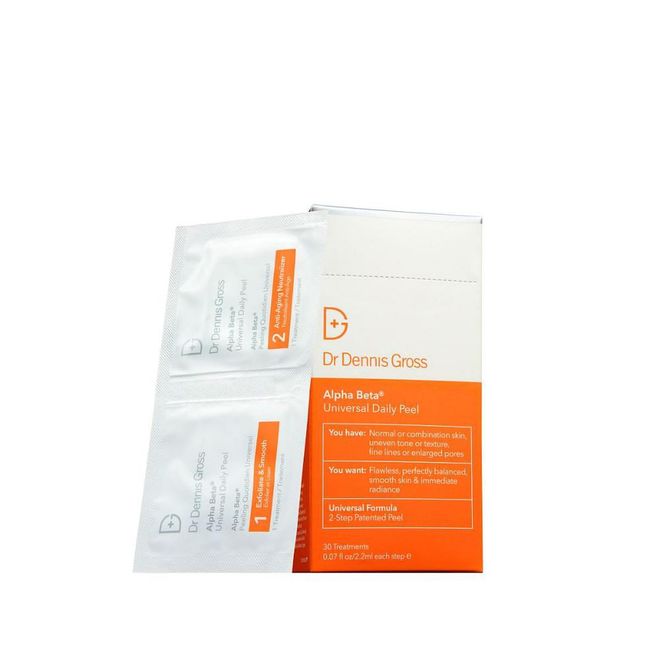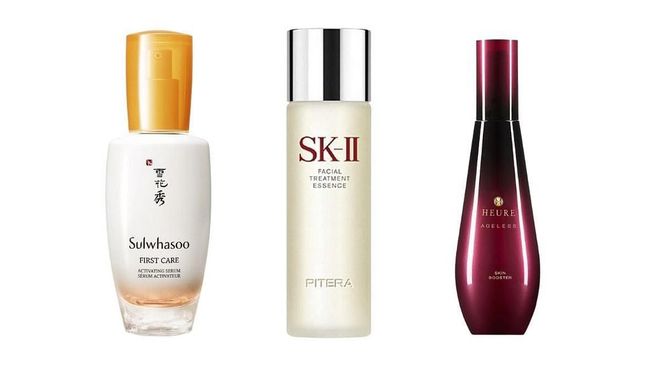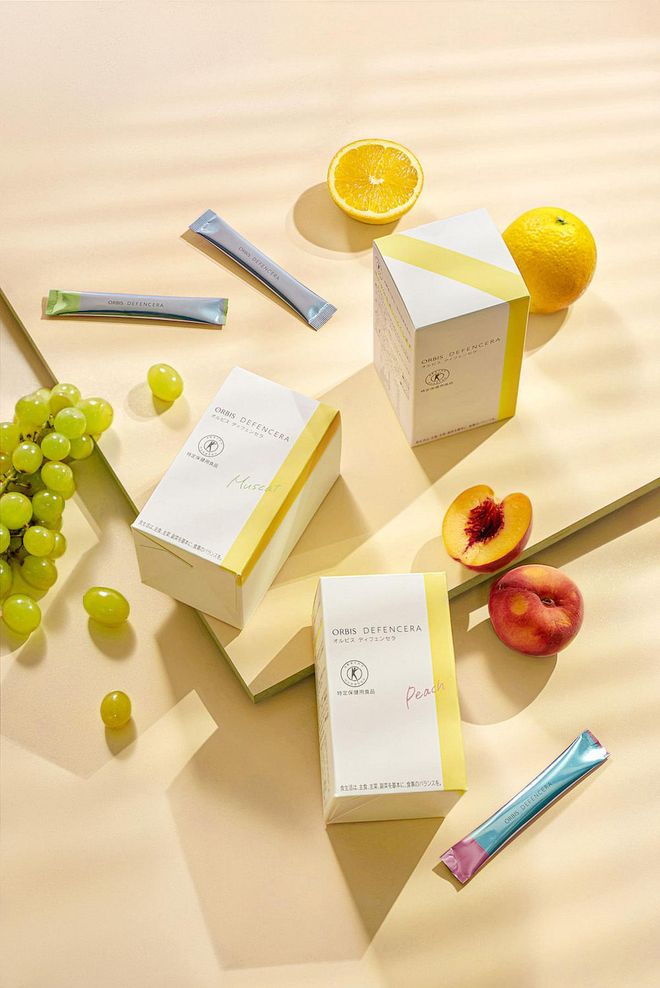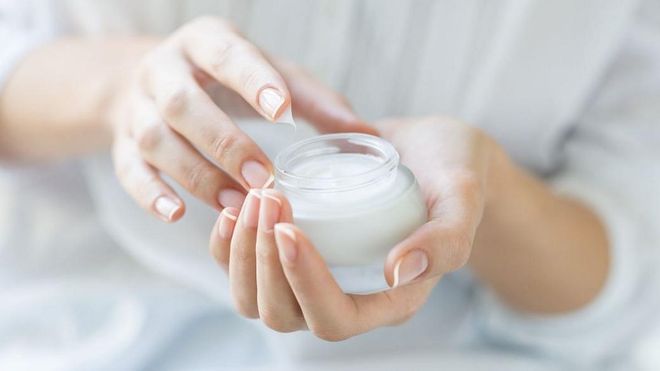
Hydration is the key to healthier skin, so what can you do about parched skin besides applying a copious amount of moisturiser and hoping for the best? Here's the strategic approach to ensuring that your skin gets the most amount of hydration it needs.
1. Exfoliate, exfoliate, exfoliate
When skin is dry, there's often a layer of dead skin on the surface that forms a barrier and prevents skincare products from being absorbed. To tackle this problem, use an exfoliator at least twice a week. They usually come in two forms — physical exfoliators like your gritty scrubs or chemical exfoliators like at-home peels. While chemical peels sound scary and no one wants a situation like Samantha's chemical peel experience in Sex & The City, most at-home peels aren't formulated with an acid concentration that's high enough to trigger a reaction like hers.

Alpha Beta Universal Daily Peel, $135, Dr Dennis Gross
Physical exfoliators like scrubs don't work as well as they rely on friction and abrasion to remove dead skin, and the results are often uneven or harsh on sensitive skins. We recommend a chemical peel like Dr Dennis Gross Alpha Beta Universal Daily Peel, which helps loosen the "glue" holding the topmost layer of dull, dead skin to the surface. They shed off naturally and easily on their own, and the result? Smoother skin that's ready to absorb all the hydration the rest of your skincare steps have to offer.
2. Use a toner
Traditional toners balance the skin's pH back to its natural levels of around 5.5 after cleansers (which are normally alkaline in nature) disrupt the balance. However, cleansers these days do an amazing job of getting rid of impurities without affecting the skin's pH or microbiome, which leaves the question of whether toners are even necessary now.

From left: First Care Activating Serum, $118, Sulwhasoo; Facial Treatment Essence, $289, SK-II; Ageless Skin Booster, $130, HEURE
Similar to how cleansers have improved over the years, the same goes for toners. Besides performing the function of balancing pH levels, they're also formulated to be ultra-hydrating while prepping the skin for the products that follow in a skincare routine. These days, the skincare step before serums go by many different names — lotions, essences, boosters — but the point is, they help create an additional layer of hydration while allowing the serums and moisturisers to penetrate the skin deeply.
3. Eat your skincare
If beauty supplements are new to you, know that the ones that help with hydration mainly contain hyaluronic acid to create a reservoir of moisture for the skin to draw from, or ceramides to restore skin's barrier functions and prevent trans-epidermal water loss.

Ceramides fill up the spaces in between skin cells to form a "wall" that performs two functions — keep aggressors out, and keep moisture in. Those with drier skin types often experience water loss through the skin, which is why it's important to improve the body's store of ceramides. The ORBIS DEFENCERA contains a highly purified form of ceramide derived from brown rice and is able to replenish the ceramides in the body to help skin retain moisture.
4. Avoid hot showers

Image: Getty
A steamy hot shower can be your way of unwinding after a long day but it can also cause your skin to dry out. Hot showers strip your skin of its natural hydration and damage the outermost layer of skin, exacerbating dry skin and potentially leading to skin problems like eczema. High-temperature water can also cause mast cells which release histamine, leading to itchy skin. Our suggestion: Stick to lukewarm water to ease tensions and don't forget to moisturise with a nourishing body cream like Bioderma's Atoderm PP Baume.
5. Don't skip the moisturiser

Image: Getty
Believe us when we say we understand the hate for that yucky, sticky feeling that some moisturisers leave. If you're the kind who thinks that serums are "good enough" when it comes to hydration, we're here to burst your bubble. The role that serums play is to pack in loads of active ingredients for the skin to absorb. However, they lack the fatty acids that moisturisers come with that help seal in the hydration.
Water or gel-based moisturisers may not offer as much hydration for drier skin types, and we suggest going for something more emollient and rich. If the heavy texture bothers you, try using your fingers to warm up the creams before pressing them onto your face as opposed to rubbing them on.